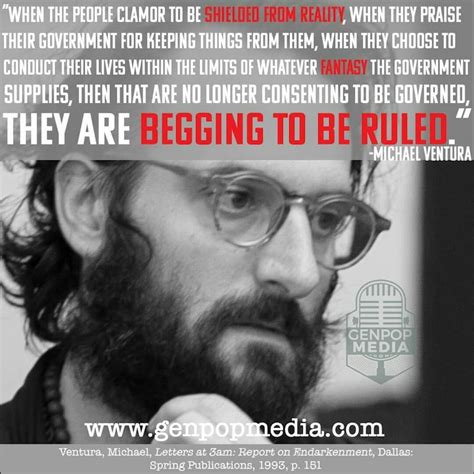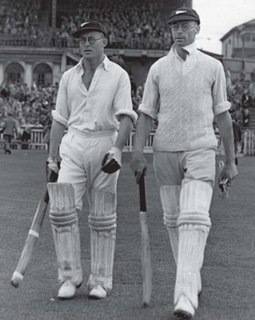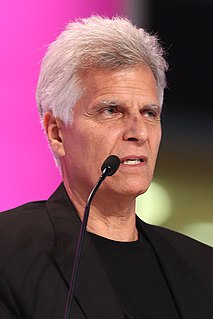A Quote by Michael Ventura
We have a culture that is indirect in the extreme, where by the time you're five years old, you've watched tons of television, and have been subjected to what I call "the age of interruption," where everything is interrupted every minute. We have constant input from TV, computers, fax machines, telephones, etc. It's very hard for a modern American to have two hours of uninterrupted time. I know how it is because I insist on several hours of uninterrupted time each day, and I know how ruthless I have to be to get it.
Quote Topics
Age
American
Because
Been
By The Time
Call
Computers
Constant
Culture
Day
Each
Each Day
Etc
Every
Everything
Extreme
Fax
Fax Machines
Five
Five Years
Get
Hard
Hours
How
Indirect
Input
Insist
Interrupted
Interruption
Know
Know How
Machines
Minute
Modern
Modern America
Old
Ruthless
Several
Telephones
Television
Time
Tons
TV
Two
Very
Watched
Years
Related Quotes
Fiction -- at least for me -- requires long, relatively uninterrupted time stretches in which to bring it to fruition. I've never been a two-hour-in-the-morning writer, who could put in another six hours on Sunday afternoon. For me, a novel requires weeks of living in a largely mental and wholly internal landscape. Everything else has to be relegated to the odd hour here, the bit of time there. Sadly, however, uninterrupted time blocks are not what life doles out today to any of us with regularity.
I highly recommend setting aside pockets of time during each day for solitude. You might have only five or ten minutes, but be alone and uninterrupted. And then sometime each week devote an extended time - at least one hour - to reconnect with your soul. How and when you do it is a very personal thing, but plan it because solitude doesn't happen on its own. Make it a priority in your life.
I was very, very young when I first started acting. My first movie role I was in, I was eight years old at the time. My mom got me involved in community theater stuff when I was like five or six years old. How I learned to read was by reading the captions on TV, and I grew up from a really young age watching tons of movies and television.
Mr. Russell is a great believer in versatility in all creative work. In any physical work he believes one can work many hours at a time, but in mental, creative work he believes one can do his best only for two hours at a time on any one subject, but he can work another two hours on another subject with equal freshness. He therefore sometimes works two hours a day on each of five different creations, and in that way can live five lives at a time.
Time is an equal opportunity employer. Each human being has exactly the same number of hours and minutes every day. Rich people can't buy more hours. Scientists can't invent new minutes. And you can't save time to spend it on another day. Even so, time is amazingly fair and forgiving. No matter how much time you've wasted in the past, you still have an entire tomorrow.
Time is only an idea. There is only the Reality. Whatever you think it is, it looks like that. If you call it time, it is time. If you call it existence, it is existence, and so on. After calling it time, you divide it into days and nights, months, years, hours, minutes, etc. Time is immaterial for the Path of Knowledge.
Give yourself the gift of uninterrupted time. It can be the first hour of your day. Or the last hour. A lunch hour. You want time free from phone calls, visitors, mail, things to read. Unplug the phone if you have to. Lock your door. Put a sign on it that warns people of the consequences of entering. Do what you have to and watch the results. One hour of uninterrupted time can double a person's productivity for the day.
Every time. You know why? I want to fail. I work like a dog for twenty years so I'll have the supreme pleasure of failing. Never knew anybody like that, did you? I'm very cunning. I plan it in advance. I fool myself right up to the last minute, and then the time comes and I know how cunningly I've been planning it all the time. I've been a failure all my life.
Film and television are very different. On the TV show, we do seven or eight scenes a day, so time and money are of the essence, and we have zero room for creativity because you've got to do each scene in only five takes. Whereas, on a film, you have an entire day to film one scene, so you have so much time to choose how you want to fill in a scene.
The hours spent viewing TV are hours not available for actively participating in the real world, or playing, or being involved with friends and family. Watching television is an individual activity that tends to discourage interaction with others; as viewing time increases, family communication time decreases. As family communication decreases, people grow more distant from each other and may even forget how to carry on a good conversation.






































